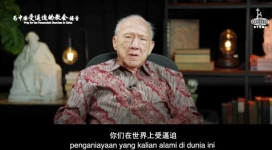
A 20-year-old rule banning religious headgear in competitive basketball could be eliminated, clearing the way for athletes to wear hijabs, turbans and yarmulkes in international competitions.
Some groups interpreted the provisions of the rules on uniforms as a ban against the participation of players of certain faiths, reports CSN. According to the International Federation of Basketball, or FIBA, headgear was banned for safety reasons, in case it fell off and someone would slip on it or become entangled during a game.
FIBA managers told the organization's playing rules committee members at this month's meeting to create a proposal that outlines how headgear can be worn safely during games. The goal is to approve the changes at a meeting in May, FIBA representatives announced.
The move comes following a two-year study, and not long after a letter published on social media and sent to FIBA president Horacio Muratore. The letter called for the end of the rule, and was signed by a dozen WNBA players, including Breanna Stewart, tennis greats Billie Jean King and Martina Navratilova, and U.S. Olympic fencer Ibtihaj Muhammad.
"I am a Muslim, and I think anybody should have the right (to wear headgear)," said Nuggets forward Kenneth Faried, who also signed the letter and won a gold medal with the U.S. in the 2014 Basketball World Cup.
"Jewish -- hey, if you're Gothic, whatever your religion is -- Muslim, Christian, Catholic, it doesn't matter. You should be able to support your religion and wear whatever is part of your religion."
Olympic Council of Asia (OCA) representatives began to push for changes in this headgear ban as early as 2009. A Kuwaiti player was barred from playing at the Asian Youth Games that year because she was wearing a hijab. Rabab Abdullah, 16, missed the first two games of the 3-on-3 basketball competition because officials deemed she was not properly attired. Changes in the rules reportedly were not communicated to the Kuwaitis.
Three players from Bahrain also initially barred for the same reason that year, but, unlike the Kuwaiti, they eventually were given the all-clear to play their matches.
OCA president Sheikh Ahmad Al-Fahad Al-Sabah said at the time that while the council respects the rules set by international sports federations, it does not want to restrict the participation of athletes. "We don't (want) to control the freedom of the athletes to participate, especially if it's something not related to the sport," said Sheikh Ahmad, who also was Kuwait's Deputy Prime Minister. "At the same time, we have to respect the regulations and the rules of any international federation. But we will work very closely with them to change it in the future."
Other sports already relaxed such regulations.
The International Football Association Board, soccer's governing body, in 2012 approved headscarves for female Muslim players, reversing a ban that had been enforced since 2007. FIFA, soccer's governing body, said the following year that men could wear head covers during matches, provided they were the same color as the jersey, had a "professional appearance" and did not "pose any danger."







